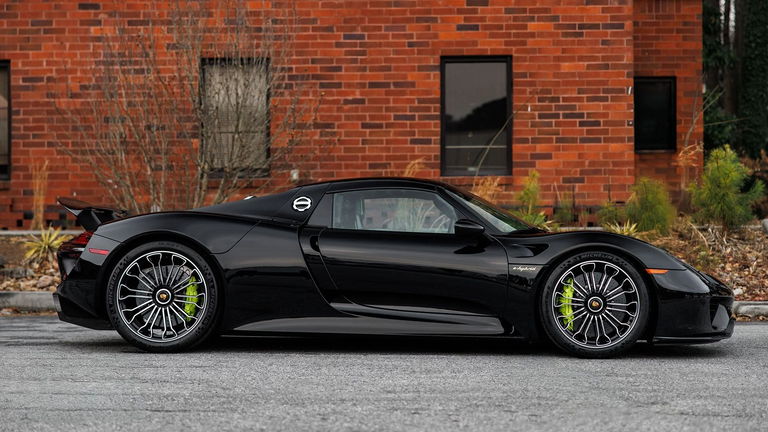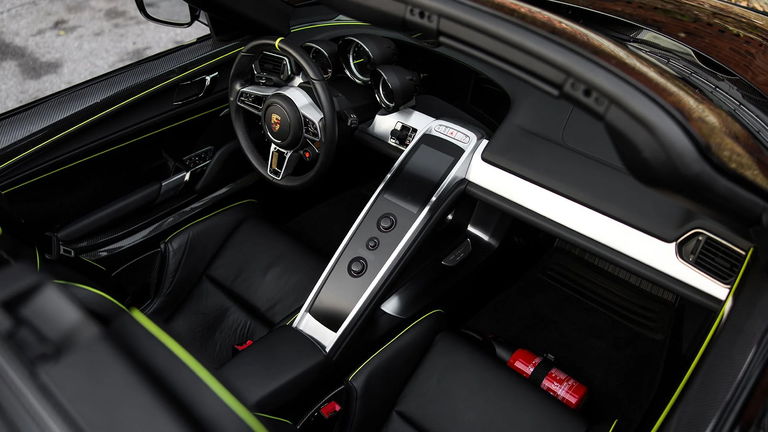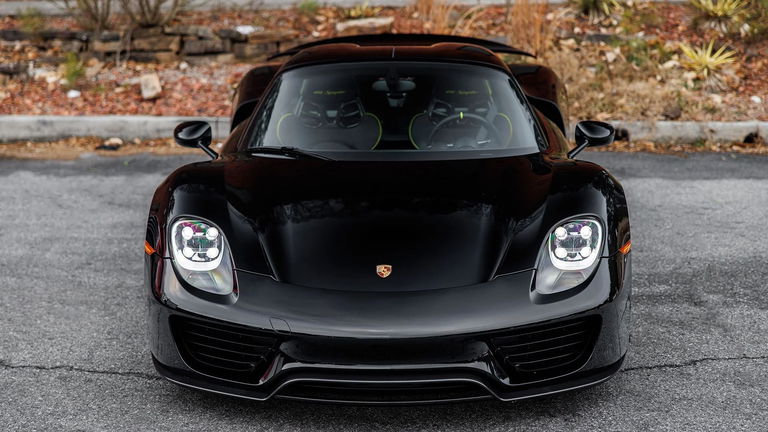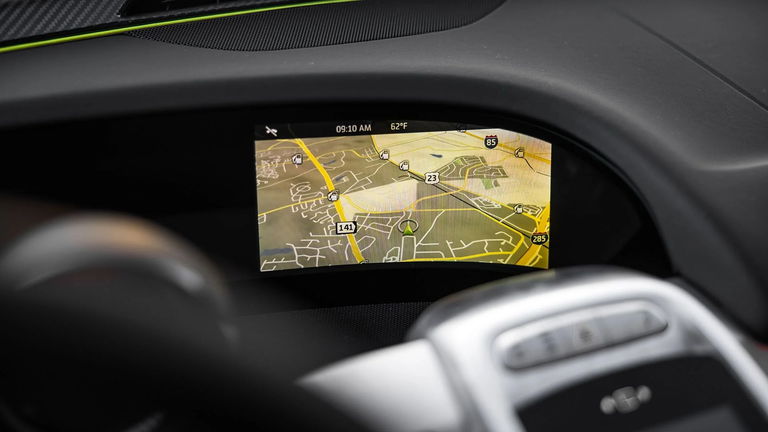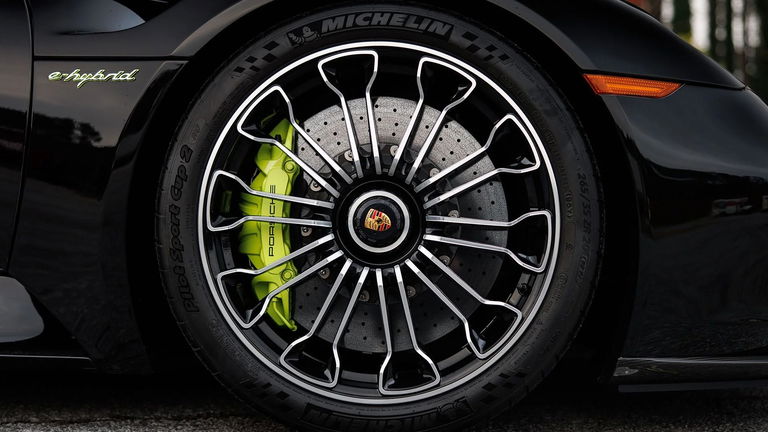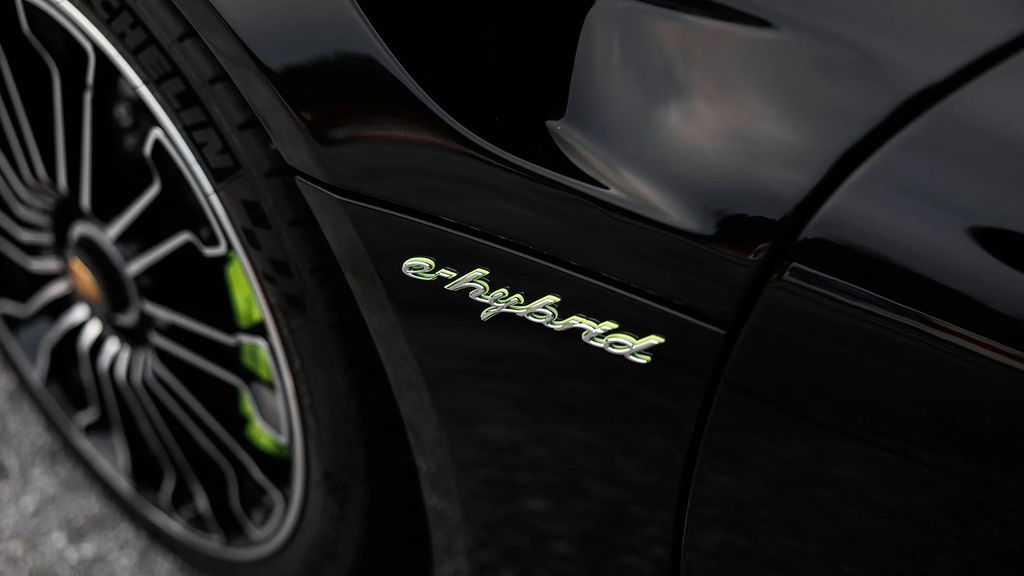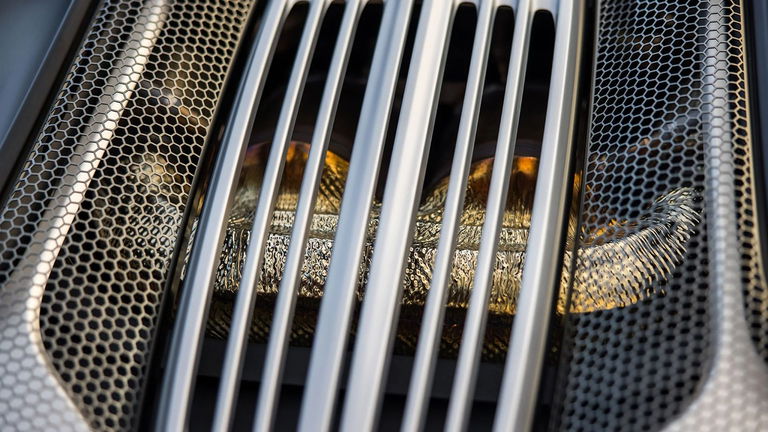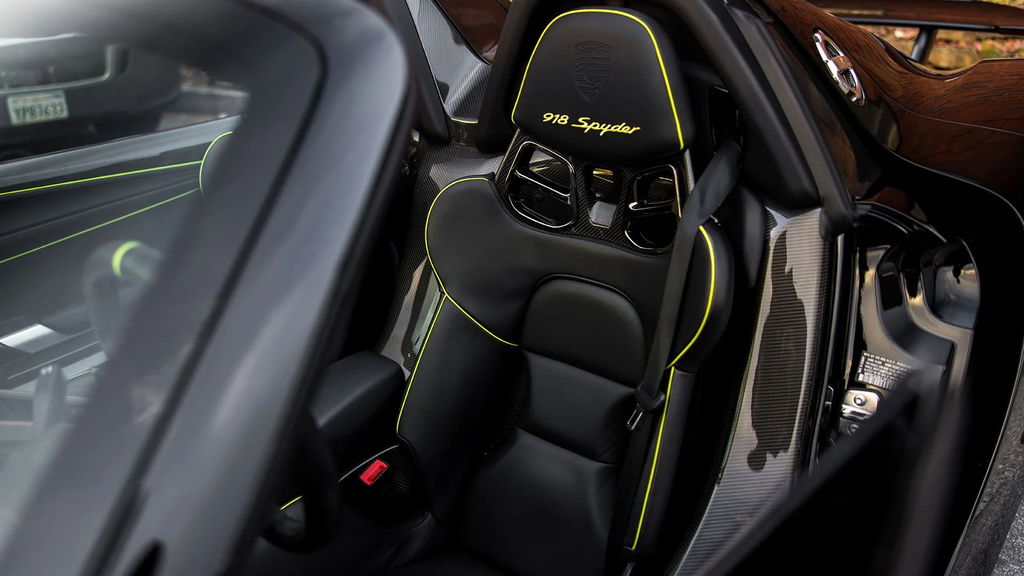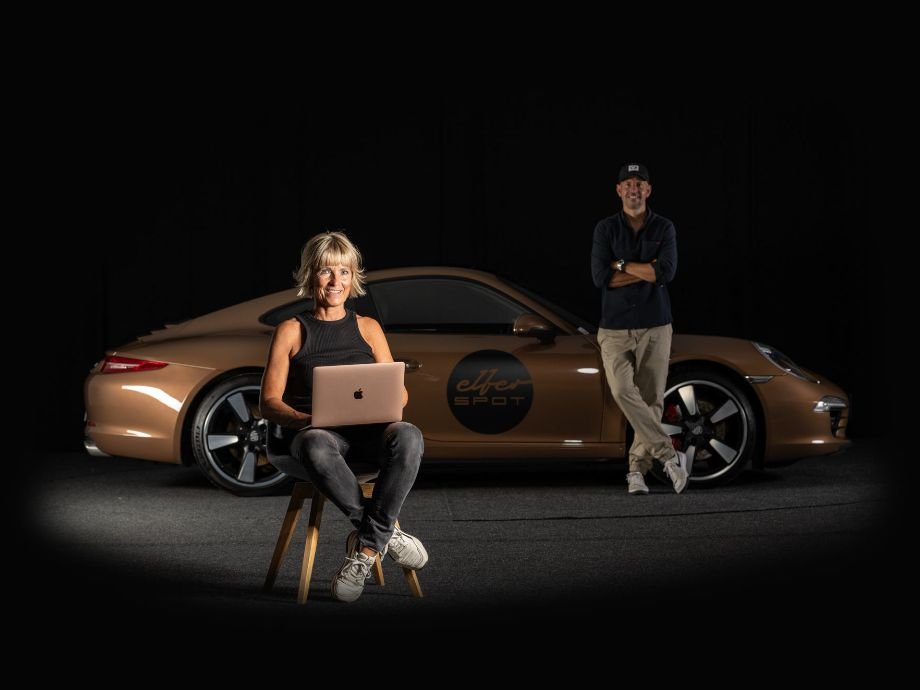Chassis No. WP0CA2A12FS800180
Following the legacy of the Carrera GT, the Porsche 918 Spyder debuted as a design study at the 2010 Geneva Motor Show before entering production in 2013. Competing with the Ferrari LaFerrari and McLaren P1, these hybrid-electric hypercars blended extreme performance with sustainability. Each model took a unique approach to hybrid technology, setting the foundation for 21st century performance hybrids.
Ferrari’s LaFerrari retained the closest philosophy to conventional supercars, pairing a 6.3-liter V12 with a Formula One-derived Kinetic Energy Recovery System that automatically managed hybrid power deployment. In contrast, both the 918 Spyder and P1 embraced plug-in hybrid technology, allowing their electric motors to be charged via the engine or an external source. Their V8 engines and electric motors could function together or independently, enabling all-electric operation for short distances.
Drawing from its motorsport pedigree, Porsche equipped the 918 with a 4.6-liter naturally aspirated V8 derived from the Porsche RS Spyder LMP2 racer. This engine alone produced 607 horsepower, while dual axle-mounted electric motors added 280 horsepower, bringing the total output to 887 horsepower and an astounding 944 lb-ft of torque—nearly 50 percent more than its Ferrari and McLaren rivals.
The 918’s advanced hybrid system provided unmatched flexibility through five distinct driving modes: E-Power, Hybrid, Sport Hybrid, Race Hybrid, and Hot Lap. E-Power mode allowed for pure electric driving up to 12 miles, reaching a top speed of 93 miles per hour with zero to 60 in seven seconds. At the other extreme, Hot Lap mode unleashed the full potential of both power sources, achieving the run to 60 in under three seconds and a top speed of 211 mph. Remarkably, the 918 combined these capabilities with efficiency, achieving a 420-mile range in Hybrid mode while setting benchmarks in fuel economy and emissions.
A crucial element in the 918’s performance was its seven-speed dual-clutch PDK transmission, refined over decades since its debut in the Porsche 962 racing car. With separate clutches for even and odd gears, this system ensured lightning-fast shifts and seamless power delivery. The 918 also featured an advanced four-wheel steering system and an intelligent all-wheel-drive setup that optimized torque distribution between the front and rear wheels. Above 165 mph, the system transitioned to rear-wheel drive to fully exploit its capabilities.
Braking performance matched its acceleration prowess, thanks to a cutting-edge ABS system and massive carbon-ceramic discs clamped by six-piston front and four-piston rear calipers. This ensured exceptional stopping power, reinforcing the 918’s reputation as a hypercar that excelled in acceleration, handling, and braking.
By blending race-bred engineering with groundbreaking hybrid technology, the Porsche 918 Spyder redefined performance benchmarks. Alongside the LaFerrari and P1, it laid the groundwork for modern hybrid hypercars, demonstrating that electrification could enhance, rather than compromise, high-performance driving.
Finished in a sleek Black (A1) exterior, this 2015 Porsche 918 Spyder, with limitation number 180, was delivered new through Isringhausen Imports of Springfield, Illinois, in October 2014. Equipped with sport bucket seats trimmed in Onyx Black leather, the Acid Green piping provides a vibrant contrast to the sleek technology-filled interior. As the halo Porsche to begin the 21st century, the 918 was very well equipped from the factory and the original owner opted for the lightest specification without selecting the Weissach Package.
Offered with just 887 miles at the time of cataloging, this car is offered in excellent cosmetic condition as a true collector-quality example. It is furnished with a clean CARFAX Vehicle History Report confirming its sub 1,000-mile status. As one of the original “holy trinity” hypercars, the highly-collectible 918 Spyder—one of just 300 delivered to the United States—was a true pioneer in hybrid-electric technology that laid the framework still used by modern performance cars to this day. It remains as desirable as the day it was introduced.



